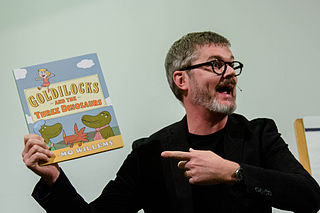A Quote by Jed Mercurio
The idea of a physical stigma is quite appealing. When I wrote the book of 'Bodies,' there was a lot of that in the book about how there are physical manifestations of psychological problems - I think it's described as 'Narrativizing The Body.'
Related Quotes
A book, being a physical object, engenders a certain respect that zipping electrons cannot. Because you cannot turn a book off, because you have to hold it in your hands, because a book sits there, waiting for you, whether you think you want it or not, because of all these things, a book is a friend. It’s not just the content, but the physical being of a book that is there for you always and unconditionally.
I can only describe it as: the whole experience was imprinted on my body. And when I started to write it, it just came from such a very, In The Body of the Worldvery physical... it just came from my body. I don't know how to explain it better than that. I guess my head was transmitting it. It was a very, very physical experience writing this book.
Generally I start writing when I have even the smallest idea of how a book is going to go, because the physical process of writing itself keeps the mind active and focused on the job at hand. Usually I write in about 5 drafts, but that simply means there are 5 definite times when I go in a linear fashion from the beginning to the end of the book.
When a patient tells a doctor that every symptom is the most horrible ever - and the physical exam and labs are normal - we often suspect something psychological is going on. The symptoms aren't fake. They're physical manifestations of anxiety, depression, and stress. So while I'm always on the lookout for a serious underlying disease.
"The War on Consciousness" is really all physical manifestations and all those problems are ultimately just a war on your way of thinking. Especially now, when we're involved in the war on terror. Terror is a psychological term. Terrorism is a political term. Terrorist is a sociopolitical term. But terror is a psychological thing.





































